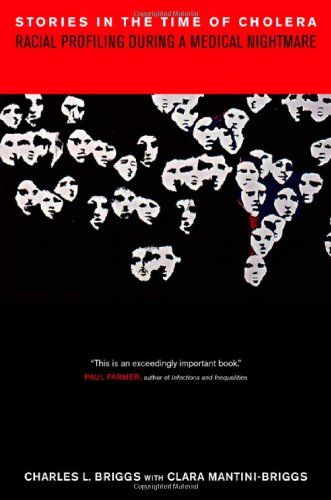

Most ebook files are in PDF format, so you can easily read them using various software such as Foxit Reader or directly on the Google Chrome browser.
Some ebook files are released by publishers in other formats such as .awz, .mobi, .epub, .fb2, etc. You may need to install specific software to read these formats on mobile/PC, such as Calibre.
Please read the tutorial at this link. https://ebooknice.com/page/post?id=faq
We offer FREE conversion to the popular formats you request; however, this may take some time. Therefore, right after payment, please email us, and we will try to provide the service as quickly as possible.
For some exceptional file formats or broken links (if any), please refrain from opening any disputes. Instead, email us first, and we will try to assist within a maximum of 6 hours.
EbookNice Team

Status:
Available4.3
7 reviews
ISBN 10: 1417508140
ISBN 13: 9780520230316
Author: Charles L Briggs, Clara Mantini Briggs
Cholera, although it can kill an adult through dehydration in half a day, is easily treated. Yet in 1992-93, some five hundred people died from cholera in the Orinoco Delta of eastern Venezuela. In some communities, a third of the adults died in a single night, as anthropologist Charles Briggs and Clara Mantini-Briggs, a Venezuelan public health physician, reveal in their frontline report. Why, they ask in this moving and thought-provoking account, did so many die near the end of the twentieth century from a bacterial infection associated with the premodern past?
It was evident that the number of deaths resulted not only from inadequacies in medical services but also from the failure of public health officials to inform residents that cholera was likely to arrive. Less evident were the ways that scientists, officials, and politicians connected representations of infectious diseases with images of social inequality. In Venezuela, cholera was racialized as officials used anthropological notions of "culture" in deflecting blame away from their institutions and onto the victims themselves. The disease, the space of the Orinoco Delta, and the "indigenous ethnic group" who suffered cholera all came to seem somehow synonymous.
One of the major threats to people's health worldwide is this deadly cycle of passing the blame. Carefully documenting how stigma, stories, and statistics circulate across borders, this first-rate ethnography demonstrates that the process undermines all the efforts of physicians and public health officials and at the same time contributes catastrophically to epidemics not only of cholera but also of tuberculosis, malaria, AIDS, and other killers. The authors have harnessed their own outrage over what took place during the epidemic and its aftermath in order to make clear the political and human stakes involved in the circulation of narratives, resources, and germs.
1. Preparing for a Bacterial Invasion: Cholera and Inequality in Venezuela
2. Epidemic at the Door: Cholera Prevention in the Bureaucratic Imaginary of Delta Amacuro
3. Stories of an Epidemic Foretold: Cholera Reaches Mariusa
4. Fighting Death in a Reglonal Clinic: Cholera Arrives in Pedernales
5. Turning Chaos into Control: Initial Responses by Regional Institutions
6. Containing an Indigenous Invasion: Quarantine in Barrancas
7. Exile and Internment: The Mariusans on La Tortuga
8. Medicine, Magic, and Mtlitary Might: Cholera Control on La Tortuga
9. Culture Equals Cholera: Official Explanations for the Epidemic
10. Challenging the Logic of Culture: Resisting Official Explanations for the Epidemic
11. Local Numbers and Global Power: The Role of Statistics
12. Sanitation and Global Citizenship: International Institutions and the Latin American Epidemic
13. Virulent Aftermath: The Consequences of the Epidemic
life in the time of cholera summary
stories about cholera
history of cholera in the us
the history of cholera in great britain
the story of cholera in english
Tags: Charles L Briggs, Clara Mantini Briggs, Cholera